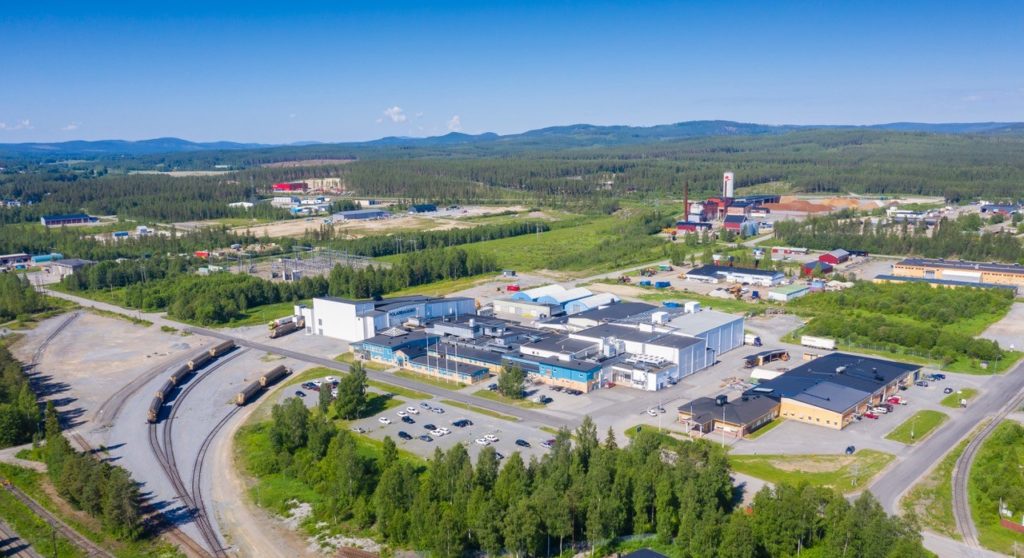Prosperity Loves Economic Complexity
Government intervention in economic policy, specifically industrial and manufacturing policy, is a much-debated matter, but resent research show the correlation between proactive government intervention and sustainable economic growth.[1] Two conclusions emerge from this line of reasoning. First, the lower the economic complexity of a nation, the more interventionist a government must be. The second: the smaller an economy is, the more interventionist a government must be.

Economic complexity enables competitiveness
Economic complexity refers to the amount and diversity of useful knowledge in a society that can be put to use to create economic value. Our increasingly technological world demonstrates how networks of knowledge workers such as engineers, scientists, mathematicians, programmers, designers, and others have contributed to economic complexity, driving many Western economies. Economic complexity is an innate trait of many industries—such as automotive, transportation, space, telecommunications, medical equipment, and defense—and the complexity reflects the amount of expertise involved, the depth and width of the supply chain, and the global reach of the organizations involved. By its very nature, economic complexity creates the need for knowledge, skills, and an educated, enlightened citizenry. More importantly, economic complexity leads to millions of direct, advanced-level jobs of a higher paying nature, as well as a multiple of indirect, less advanced-level jobs to supply and service the more complex activities of the economy. All of this improves per capita income, contributes to a nation’s GDP, and builds broad-based economic prosperity.
In The Atlas of Economic Complexity: A Path to Prosperity (published by Harvard’s Center for International Development in 2012), Ricardo Hausmann and César A. Hidalgo point out that economic complexity ensures a nation’s competitive advantage. Not every nation can make advanced products, which manifests a complex economy. Take the space shuttle, for instance, where only a few countries of the world have the resources, infrastructure, scientific expertise, manufacturing capabilities, and supplier networks to innovate, design, procure, integrate, and produce in such a manner to enable successful space travel. On the other hand, consider textile manufacturing, in which cotton shipped to many countries around the world is turned into standard-designed shirts sewn by laborers at increasingly low wages.
It is also possible to distinguish nations whose wealth derives from having a high economic complexity and nations whose wealth stems from the “luck” of sitting on natural resources, such as minerals, oil, or diamonds. Nations can have high per capita incomes, but lack economic complexity. When Haussman and Hildago controlled for income from extractive resources, it turns out that economic complexity explains about 73% of the variation in income across 128 countries. The conclusion is that economic complexity is not just a symptom or an expression of prosperity: it is a driver.
Manufacturing industries remain vital to a complex economy. This goes against the grain of what we often see in simple economic trade models that suggest that a country rich in resources ought to specialize in their extraction and sale. In reality, manufacturing is often the primary employment generating sector (both direct and indirect jobs), and is fundamental to the social cohesion of a society.
Manufacturing also has a multiplier effect on the rest of the economy. The United States (US) Bureau of Labor Statistics calculated that every dollar of manufactured goods creates another US$1.43 of economic contribution towards other sectors, the highest multiplier of any sector. This is double the multiplier effect of services at US$0.71 (King 2010). Research from 2014 in the UK by the West Midlands Economic Forum suggests that the comparative contribution of manufacturing to the economy, taking into account the direct and indirect contribution through the distributed supply chain, is 3 to 4 times higher than reported in the official statistics.[2] This exemplifies the tremendous importance of the manufacturing sector to the economy in terms of job creation, investments and spillover sales into other sectors.
Wealth from natural resources alone can be risky, as it leads to what is called the “Dutch disease,” a term referring to the phenomenon when the wealth generated by a country’s booming resources sector drives up the exchange rate and ends up inflating the domestic economy, making the country (and its manufacturing sector) less internationally competitive and compromising its long-term economic prosperity – which we observe, for instance, in the Australian economy over the last ten-year period. More recently, Norway too show signs of this disease.
There are many instances of nations that have allowed a shift away from manufacturing, and the result has been a decline in the long term prosperity of the country since it takes longer and is much more complex and complicated (and hence costly) to rebuild a competitive manufacturing industry than it is to allow it to die. Take England and its tool manufacturing, Ireland and its auto industry, Poland and its shipbuilding, and others. The US auto industry came close to dying, taking with it millions of direct and indirect jobs, until Barak Obama stepped in with a package of government loans to save two (Chrysler and GM) of the Big Three auto companies.
Size Matters
The second argument is that the small size of a country’s economy also matters when it comes to the need for government intervention. If complexity is a function of the diversity of knowledge in a country and the uniqueness of its capacities, it stands to reason that smaller economies are likely to suffer from a lack of diversity and/or uniqueness, at least relative to larger economies. Proof of this is obvious in the scores of small economies that are among the poorest developing nations of the world –economies that lack natural resources as well as strong knowledge diversification feeding a manufacturing sector or other complex industries. In smaller countries in Africa and Latin America, for example, the economy is based on handicrafts, agriculture, small goods exporting, and sometimes tourism. Expressed in neoclassical terms, this means that the smaller the economy the more market failure becomes an attribute of the economy as a whole.
Government Intervention?
As a consequence of the above, government intervention is required in non-complex and small economies simply because leaving the long-term success of a nation to the invisible hand of the market is just that: invisible. History shows that the free market philosophy is rife with invalid assumptions, e.g. that the market is efficient, that people behave in rational ways, that profit maximization is a effective driver of sustainable economic behavior, and that the common good is an emergent property of the market player’s interactions. In short, the free market provides no guarantee of complexity building and its resulting economic prosperity.
Governments are perhaps the only institution that can intentionally create the context for complexity to grow in non-complex and small economies. Through its ability to collect and analyze big data and find patterns, governments can best target what needs to be regulated, promoted, or modified among a nation’s infrastructure and higher education to supply the expertise and knowledge workers required. Only governments can set up unique industrial zones, tax advantages, subsidies, research grants, and public procurement practices to build and optimize economic complexity. The assumption is, of course, that people in government are competent.
Ashby’s law of requisite variety
One of the reasons I support competent government intervention in smaller economies derives from systems theory, and is referred to as Ashby’s Law of Requisite Variety (1956 & 1958). This is a general principle that applies to any system, whether economic, social, mechanical or biological. It has practical relevance for systems that need to survive and grow in uncertain, turbulent environments, such as national economies operating in today’s globalized world.
Ashby’s Law was derived from mathematical analysis, but expressed in words it is very simple: control can only be obtained if the internal regulatory mechanism of a system is as diverse as the environment with which it interacts. The key word is ‘variety:” If the internal variety of the system does not match the diversity of the external world, the system will fail. The economic interpretation of this is that a complex economy is necessary to have a large range of diverse options to cope with changing circumstances, such as changes in supply and demand, population movements and growth, changing demographics, advances in technologies, and creative destruction.
This law also has clear and practical implications for the role that governments can or should be playing. If an economy is simple or small, nations need government to move them towards complexity and growth through the tools at its disposal. Over time, government can compensate for the optimizing complexity work that the free market has been unable to accomplish. This will not, of course, happen instantaneously but over time, government intervention can be a positive force in creating the environment for complexity to take root and evolve.
Examples of how governments have successfully achieved greater complexity in their economies abound. Consider the decade of prosperity that Ireland achieved after the government promoted the assembly of high technology products such as computers. Sweden’s industrial complexity growth driven by government being a demanding buyer of defense systems (e.g. submarines, fighter planes, mobile phone infrastructure) with performance well beyond what existed at the time of placing the order; Singapore’s economic complexity growth through a long-term interventional policy in many areas; and Korea’s decisive policies to grow economic complexity through manufacturing and design.
From my perspective, the austerity policies of many national European governments and the conservative economic policies of nations such as the U.S. and Japan may have prevented those governments from playing a role in growing their economies towards increased complexity. I realize, of course, that the EU, the IMF, and others have prevented governments from taking some actions, while backlashes among voters have also had an impact in limiting governmental motivation to reform and legislate.
But when the global economic crisis is building governments can play a more constructive role. The media is full of articles reporting on the anxiety of the potential recovery for the U.S. and Europe, the slowdown in China’s manufacturing, the self-imposed mess in Russia, and the slowing of the other BRIC members. Add to this the consequences of asymmetric wars in the Middle East and Ukraine, and the exodus of terrified people from these regions into Europe and elsewhere.
The question is how government can serve a valid and valuable role in guiding nations through the hurdles to cultivate the economic complexity necessary for long-term prosperity. Hands-off invisibility is not a good option right now.
[1] Roos, G., & Kennedy, N.(eds.). (2014). Global Perspectives on Achieving Success in High and Low Cost Operating Environments. Hershey, PA: IGI Global. doi:10.4018/978-1-4666-5828-8
[2] Assessing the Secondary Economic Impact of Manufacturing in the Midlands, November 2014, BCU Discussion Paper, Birmingham City University.
Detta är en bloggtext. Det är skribenten som står för åsikterna som förs fram i texten, inte Jönköping University.





